What is calibration in laboratory? Calibration is a crucial process in the laboratory that ensures the accuracy and reliability of measurement instruments. Without proper calibration, the results obtained from these instruments may be invalid and could potentially lead to false conclusions. In "Understanding Calibration in the Laboratory: A Comprehensive Guide," we aim to provide a comprehensive overview of lab calibration services the calibration process in the laboratory setting. This guide will cover the importance of calibration, the various methods and techniques used, and the best practices for ensuring accurate and reliable measurements. Whether you are a new technician or a seasoned scientist, this guide will help you understand the intricacies of calibration and its critical role in producing high-quality data.
Understanding Calibration in the Laboratory: A Comprehensive Guide is a detailed resource that covers all aspects of calibration in laboratory settings. It provides a thorough explanation of the importance of calibration, the different types of instruments that require calibration, and the procedures for conducting calibrations accurately. The guide also discusses the role of calibration in ensuring the accuracy and reliability of laboratory measurements, as well as the regulations and calibration of electrical test equipment standards that govern calibration procedures. Additionally, it offers practical tips and best practices for implementing a robust calibration program in the laboratory. Overall, this guide serves as a valuable reference for laboratory personnel seeking to enhance their understanding and proficiency in calibration techniques.
Understanding the Importance of Calibration in Laboratory Equipment
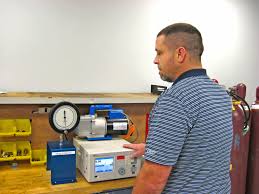
Calibration of laboratory equipment is essential for ensuring accurate equipment calibration and reliable test results. It involves adjusting the instrument or device to perform within specified parameters and to conform to established standards. Proper calibration helps in minimizing measurement uncertainties and errors, which is crucial for maintaining the quality and integrity of scientific research and analysis. Additionally, regular calibration also ensures compliance with industry regulations and standards, thereby upholding the credibility of the laboratory's testing and measurement processes. Furthermore, calibrated equipment contributes to the overall safety and effectiveness of laboratory operations, ultimately leading to improved precision and consistency in experimental outcomes. Therefore, understanding and prioritizing the importance of calibration in laboratory equipment is fundamental for achieving trustworthy and meaningful scientific results.
The Basics of Lab Calibration and Its Role in Scientific Accuracy
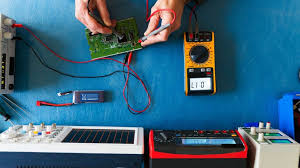
The basics of lab calibration involve adjusting and validating the accuracy of equipment used in scientific experiments. This process ensures that the instruments are measuring and producing results within a specified margin of error. Lab calibration is crucial in maintaining the reliability and precision of scientific data. It plays a significant role in ensuring that research findings are accurate and reproducible, which is essential in advancing scientific knowledge and innovation. Calibration is also important in meeting industry regulations and standards, as well as in maintaining the credibility of scientific research. Overall, lab calibration is fundamental in ensuring the accuracy and reliability of scientific measurements and experiments.
Calibration in the Laboratory: Ensuring Precise and Reliable Results
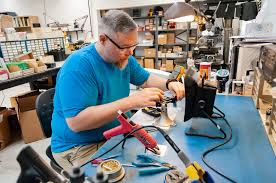
Calibration in the laboratory is a critical process that ensures the accuracy and reliability of testing equipment and instruments. It involves comparing the measurements taken by a device to known standards in order to detect and correct any deviations or inaccuracies. By calibrating laboratory equipment, scientists and technicians can ensure that the results of their tests and experiments are precise and reliable. This is essential for maintaining the quality and integrity of scientific research, as well as for meeting regulatory and quality assurance requirements. Calibration typically involves a series of tests and adjustments, and may be performed on a regular schedule to ensure ongoing accuracy. It is important for laboratories to keep detailed records of all calibration activities, including the date, method, and results of each calibration, as well as any adjustments made. Overall, calibration plays a crucial role in guaranteeing the validity and trustworthiness of laboratory results, and is a fundamental component of laboratory quality management.
Why Calibration is Vital for Laboratory Equipment Maintenance
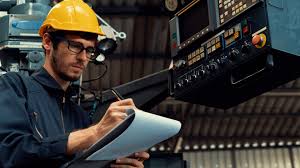
Calibration is vital for laboratory equipment maintenance because it ensures that the equipment is providing accurate and reliable results. Over time, factors such as normal wear and tear, environmental changes, and usage can cause the equipment to drift out of calibration, leading to inaccurate measurements. Regular calibration helps to detect and correct any deviations in the equipment's performance, ensuring that it continues to produce reliable data. This is particularly important in laboratory settings where precise measurements are critical for scientific research, quality control, and regulatory compliance. Additionally, regular calibration can also help to identify potential issues with the equipment early on, preventing more serious problems and costly downtime. Overall, calibration is a crucial aspect of laboratory equipment maintenance to ensure the validity and integrity of experimental results.
The Process of Calibration: Guaranteeing Accurate Laboratory Measurements
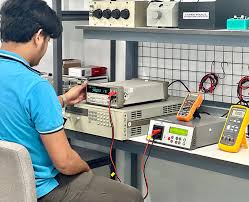
Calibration is the process of ensuring that measurements taken in a laboratory are accurate and reliable. This involves comparing the readings of an instrument or piece of equipment to a known standard in order to make any necessary adjustments. The purpose of calibration is to verify the accuracy of measurements and to maintain the quality and reliability of data collected in a laboratory setting. This is crucial in ensuring that any results obtained are valid and can be trusted for further analysis or comparison. Calibration is typically performed on a regular schedule, and is often required by regulatory agencies or accrediting bodies. It involves a series of standardized procedures and tests to determine the accuracy and precision of the equipment being calibrated. Overall, the process of calibration is essential for guaranteeing the accuracy of laboratory measurements, and is an important aspect of quality assurance in scientific research, testing, and analysis.
The Role of Calibration in Ensuring Data Integrity in the Lab
Calibration is a critical process in ensuring data integrity in the lab. It refers to the process of comparing measurements from an instrument to a known standard in order to ensure accuracy. By regularly calibrating instruments such as pipettes, balances, and spectrophotometers, labs can ensure that the data being generated is reliable and accurate. This is essential for producing valid and credible results, and for maintaining the quality of research and testing conducted in the lab. Without proper calibration, there is a risk of inaccurate measurements and compromised data integrity, which can have serious implications for scientific findings and decision-making. Therefore, calibration plays a vital role in upholding data integrity and the overall credibility of scientific research and testing in the lab.
Calibration: The Key to Valid and Reproducible Lab Results
Calibration is a crucial process in the laboratory setting as it ensures that the measurements and results obtained are accurate and reliable. It involves comparing the measurements of an instrument to a known standard in order to detect and correct any deviations. By calibrating instruments regularly, the risk of producing invalid or inconsistent results is minimized, ultimately increasing the credibility and trustworthiness of the lab's findings. Additionally, calibrated instruments contribute to the overall quality and safety of laboratory work, as they help to meet regulatory requirements and maintain compliance with industry standards. Overall, calibration is essential for ensuring valid and reproducible lab results.
The Significance of Proper Calibration for Laboratory Instruments
What is calibration in measurement
Proper calibration of laboratory instruments is essential for ensuring the accuracy and reliability of test results. When instruments are not calibrated accurately, it can lead to erroneous measurements and inaccurate data, which can have significant consequences in various industries, including healthcare, pharmaceuticals, environmental testing, and more. Calibration involves comparing the measurements of an instrument to a known standard to identify and correct any deviations. This process helps to ensure that instruments are operating within the required specifications and are delivering accurate and precise results. Proper calibration also helps to maintain the integrity of scientific research, regulatory compliance, and quality control measures. In addition to accuracy and reliability, proper calibration can also impact the safety of laboratory operations. For example, improperly calibrated instruments in a medical laboratory could lead to misdiagnosis or incorrect treatment of patients. In a manufacturing setting, calibration errors could result in defective products or even compromise the safety of consumers. Ultimately, the significance of proper calibration for laboratory instruments cannot be overstated. It is a critical aspect of maintaining the quality, accuracy, and safety of laboratory operations across various industries. Regular calibration and documentation of calibration results are necessary to ensure confidence in the data produced by laboratory instruments.
Ensuring Trustworthy Data through Effective Laboratory Calibration
Ensuring trustworthy data through effective laboratory calibration involves carefully testing and adjusting equipment to ensure accurate and reliable measurements. This process helps to minimize errors and uncertainties in data collection, ultimately leading to higher confidence in the results generated. Calibration involves comparing the readings of a piece of equipment to known standards and making adjustments as needed to ensure accuracy. Regular calibration of laboratory equipment is essential for maintaining data integrity and upholding the quality and reliability of research and testing.
The Fundamentals of Laboratory Calibration and Its Impact on Research
The fundamentals of laboratory calibration are essential for ensuring the accuracy and reliability of research results. Calibration involves comparing measurements taken by a specific instrument to those of a known standard, and making adjustments as necessary to ensure precision. In the research setting, accurate calibration is crucial for obtaining trustworthy data and drawing valid conclusions. Poor calibration can lead to inaccurate results, wasted resources, and even jeopardize the safety of experiments. Therefore, understanding and implementing proper calibration practices is vital for maintaining the integrity of scientific research.
